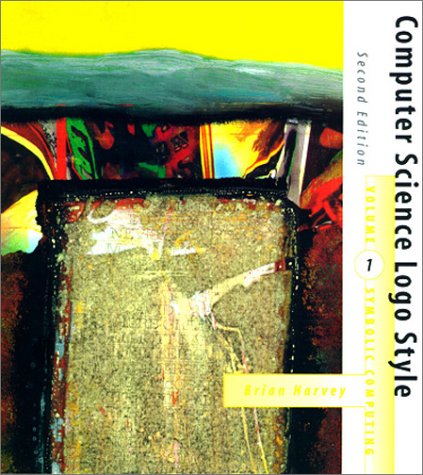
Computer Science Logo Style
by Brian Harvey
Publisher: The MIT Press 1997
ISBN/ASIN: 0262581515
ISBN-13: 9780262581516
Number of pages: 1068
Description:
This series is for people, adults and teenagers, who are interested in computer programming because it's fun. The three volumes use the Logo programming language as the vehicle for an exploration of computer science from the perspective of symbolic computation and artificial intelligence.
Download or read it online for free here:
Download link 1
Download link 2
Download link 3
(multiple PDF files)
Similar books
 Concepts, Techniques, and Models of Computer Programming
Concepts, Techniques, and Models of Computer Programmingby Peter Van Roy, Seif Haridi - The MIT Press
Covered topics: concurrency, state, distributed programming, constraint programming, formal semantics, declarative concurrency, message-passing concurrency, forms of data abstraction, building GUIs, transparency approach to distributed programming.
(25941 views)
 Mathematical Foundations of Computer Science
Mathematical Foundations of Computer Scienceby Susan Rodger - Duke University
These lecture notes present an introduction to theoretical computer science including studies of abstract machines, the language hierarchy from regular languages to recursively enumerable languages, noncomputability and complexity theory.
(16518 views)
 A Machine Made this Book: Ten Sketches of Computer Science
A Machine Made this Book: Ten Sketches of Computer Scienceby John Whitington - Coherent Press
Using examples from the publishing industry, Whitington introduces the fascinating discipline of Computer Science to the uninitiated. Chapters: Putting Marks on Paper; Letter Forms; Storing Words; Looking and Finding; Typing it In; Saving Space; etc.
(7092 views)
 Advances in Knowledge Representation
Advances in Knowledge Representationby Carlos Ramírez Gutiérrez - InTech
A compilation of research works on topics such as concept theory, positive relational algebra and k-relations, structured, visual and ontological models of knowledge representation, and detailed descriptions of applications to various domains.
(11247 views)